- The latest shuffle raises questions again about women in late-night TV
- It's a persistent issue, as late-night hosts have been overwhelmingly male
- The TV landscape may be changing, but late-night still carries a perceived status
- Having a woman listed among those considered is still important
(CNN) -- With Jimmy Fallon's takeover of "The Tonight Show" destined for 2014, there's the tiniest glimmer of hope that NBC will do something different with the vacated seat on "Late Night."
For once, maybe we'll see something fresh, something other than the established white-guy-in-a-suit-sitting-behind-the-desk tradition that's held on since the show debuted in 1982.
Longtime TV critic Ken Tucker indulged in the wishful thinking, asking on Grantland if he "may really spit in the wind and suggest that maybe, finally, for the love of God and Totie Fields, maybe it's time (once again) to give a woman a chance behind the desk?" Rather than traditional stand-up comics, Tucker hoped to see Paget Brewster, Julie Klausner, or, hope against hope, Amy Poehler, even.
But none of those women was among those named in the gossip surrounding the proceedings -- and the one woman who was, ever so tentatively, mentioned by the New York Post's Page Six, Tina Fey, was said to be "too busy" for the nightly grind.
That left Seth Meyers -- Fey, Poehler and Fallon's "Saturday Night Live" co-star -- carrying the bulk of the speculation that he'd move to "Late Night," along with rumors that Alec Baldwin might be in talks to join the post-prime-time lineup. It's thereby signaled another round of the now time-honored question, "Where the (bleep) are the ladies in late night?"
Since "The Tonight Show" began in the mid-1950s, the genre has largely been a man's domain. Yet the absence of women in that arena seems all the more conspicuous lately, as ladies are leading a variety of successful comedies in prime time, and Fey and Poehler have won near-unanimous accolades from press and viewers alike after they pulled in 19.7 million viewers at this year's Golden Globe Awards.
That alone could silence those digging up the long-ago answered question of whether women can be funny to a broader audience. But then again, being funny is just the half of it, says Joan Rivers.
The comic legend broke through to host her own late-night program, "The Late Show," in 1986 after being a consistently successful guest host on Johnny Carson's "Tonight Show." She told CNN that she knows she has two things she needs to be a host: "I'm a tremendous fan, and I think I'm very strong," Rivers said.
To be a woman and a late-night host, "you have to be extraordinarily strong without them seeing you be that," Rivers continued. "You're a lion tamer. You have to be in total command, but you still have to be feminine, and you still have to be funny, and you still have to be inquisitive -- it's a very tough thing, and it's tough for women because you don't expect a woman to take control. Still."
In Rivers' perspective, another woman will crash through the "crass ceiling," as Vanity Fair called it in 2008 -- it's just that the right person hasn't come along yet. Perhaps that could explain why we've been ruminating for so long on the conspicuous lack of women leading late-night shows.
The same inquiry was raised almost 10 years ago when CBS was searching for a replacement for "The Late Late Show's" Craig Kilborn. At the time, the network noted it was considering Michael Ian Black, D.L. Hughley, Craig Ferguson and Damien Fahey.
When Fallon was first tapped to take over for Conan O'Brien on "Late Night" beginning in 2009, the position was such a lock there didn't seem to be much point in speculating about which prominent witty woman would make a strong fit.
Back in 2012, before NBC confirmed it was moving Fallon into Leno's job, Variety noted that while there were some women holding high-ranking production jobs, they still weren't commanding much of a presence in front of the camera, on cable or broadcast. There was Bravo's "Kathy," hosted by Kathy Griffin, and E!'s "Love You, Mean It" with Whitney Cummings. But both series were canceled this year.
The one standout is Chelsea Handler, E!'s late-night mainstay who's been with the network since 2007 and has expanded her role into the show "After Lately."
But Handler, 38, has expressed little interest in ever leaving cable.
"I like how quickly it goes by," Handler told "Late Show" host David Letterman of her E! program on Friday. "I like that I don't have to rehearse, because I'm not good at memorizing things, and I like that I can just say whatever I want, I can curse and say things and they just bleep me. It's not like being on CBS."
It's true that broadcast late-night programs have lost some of their sheen over the years as competition has increased and the manner of consumption has shifted. But their gravitas is still there, said Martha Lauzen, the executive director of San Diego State University's Center for the Study of Women in Television and Film. Symbolically, at the very least, having a woman included in the running for such a position still matters.
"I think it matters whether they're on the shortlists of 'Who do we want to carry on this tradition in late night?' It is important that women are included and are given some of the same opportunities that the men are," Lauzen said. "Perception is reality. I think the perception is still that a network show is higher in status than a cable show, and that those higher status positions remain reserved for primarily white males."
With that perceived status, Time magazine's James Poniewozik has said, comes "a kind of passive-aggressive nerd power," but "it's power all the same."
"It's a relative handful of jobs, yes, but late-night comics are the unelected legislators of America: they mock the mighty and audition Presidents," Poniewozik wrote in 2010, reflecting on the question of whether women are being left out of the medium. "When late-night shows began, male-dominated comedy reflected society's power balance. Now guy humor is an increasingly isolated preserve of omega-male movies and geek-aggressive TV shows piped into man caves."
And yet, he said, "it may hold out longer than business or law, but culture can change too."
Rivers, for her part, is similarly optimistic.
"It's going to happen. It will happen. Cream rises to the top," she said. "I know it sounds stupid, I've never seen someone who has the talent who did not eventually get what they deserve in a good way. It may be a little harder, but ... I think (the networks are) desperate now. The only negative thing is that they're so desperate they're not giving people a chance to grow. Fallon was given a chance to grow, and I wonder, if he had been a woman, if they would have allowed that. I just have a feeling they wouldn't have been quite as generous in the time allotted to him to totally come into his own."
But again, it goes back to her point of finding someone fortified to withstand such a test.
"It's a very special art, a very special talent, and you have to be very strong," Rivers said. "You have to be a great talker, a great listener and you have to be a fan. And they just haven't found the woman with all that yet. But she's out there."
Tell us: Who would you like to see host "Late Night"?
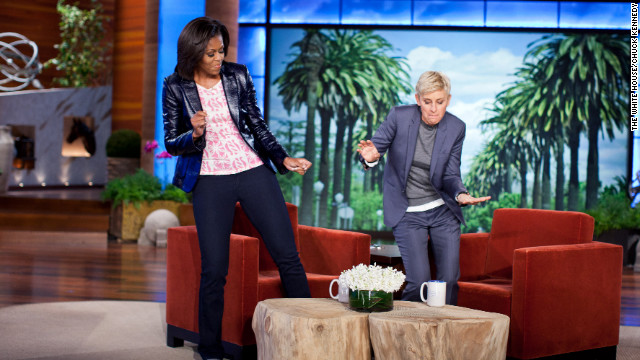 Ellen DeGeneres, seen here getting down with first lady Michelle Obama in February 2012, is well-received in daytime. When she returned for a new season last September,
Ellen DeGeneres, seen here getting down with first lady Michelle Obama in February 2012, is well-received in daytime. When she returned for a new season last September, 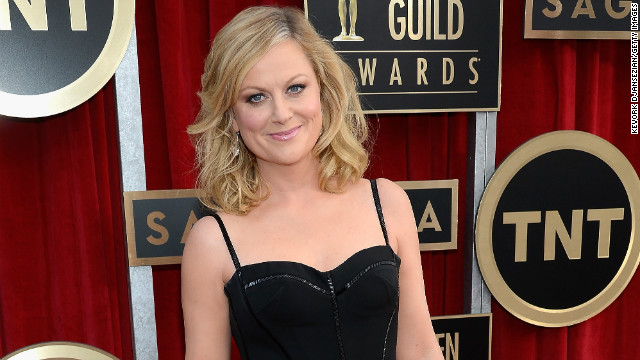 With her improv background and impeccable comedic timing, Amy Poehler, as TV critic Ken Tucker notes, would make a perfect host ... if only she'd step away from her critically adored prime-time comedy, "Parks and Recreation." Frankly, they could just put
With her improv background and impeccable comedic timing, Amy Poehler, as TV critic Ken Tucker notes, would make a perfect host ... if only she'd step away from her critically adored prime-time comedy, "Parks and Recreation." Frankly, they could just put 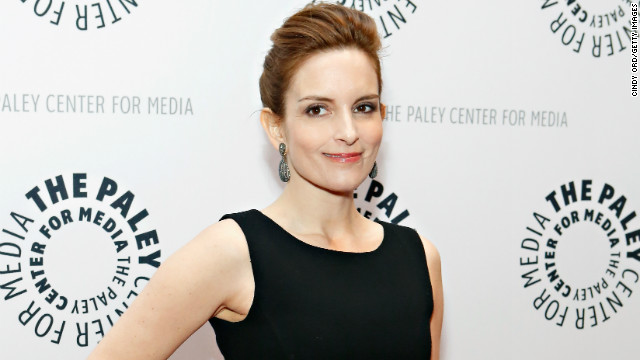 It would probably be tough to find anyone who doesn't want to see Tina Fey lead her own show. She shares the same improv and "Saturday Night Live" background as Poehler, and we know she can write with the best of them, thanks to her work on the small screen and at the movies. And, as she showed with her friend and "Baby Mama" co-star Poehler in January at the Golden Globes, Fey also makes a fantastic awards ceremony host.
It would probably be tough to find anyone who doesn't want to see Tina Fey lead her own show. She shares the same improv and "Saturday Night Live" background as Poehler, and we know she can write with the best of them, thanks to her work on the small screen and at the movies. And, as she showed with her friend and "Baby Mama" co-star Poehler in January at the Golden Globes, Fey also makes a fantastic awards ceremony host.
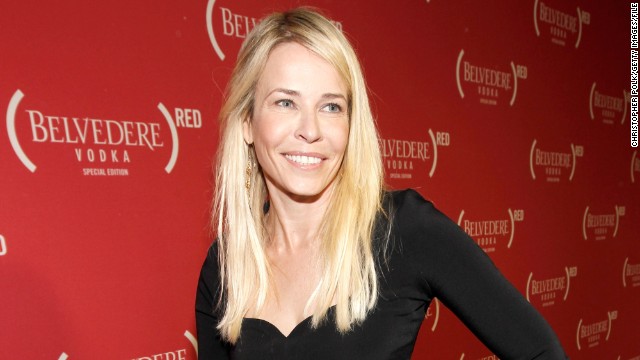 Chelsea Handler is a standout in the late-night hosting field because her E! show, "Chelsea Lately," has been popular enough to last for the past five years. Back in 2011, E! renewed the show through 2014.
Chelsea Handler is a standout in the late-night hosting field because her E! show, "Chelsea Lately," has been popular enough to last for the past five years. Back in 2011, E! renewed the show through 2014.
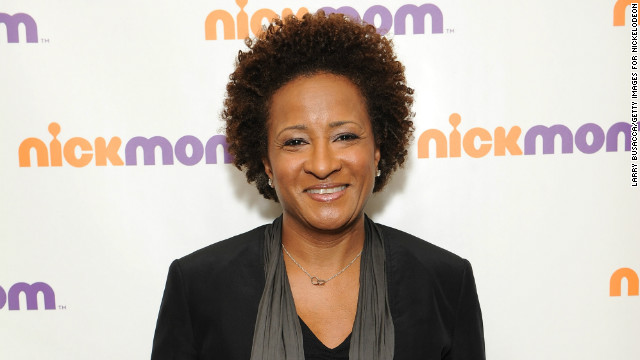 Besides being a gifted comedian, Wanda Sykes is an old pro -- she hosted and executive produced "The Wanda Sykes Show" on Fox in 2010. The show
Besides being a gifted comedian, Wanda Sykes is an old pro -- she hosted and executive produced "The Wanda Sykes Show" on Fox in 2010. The show 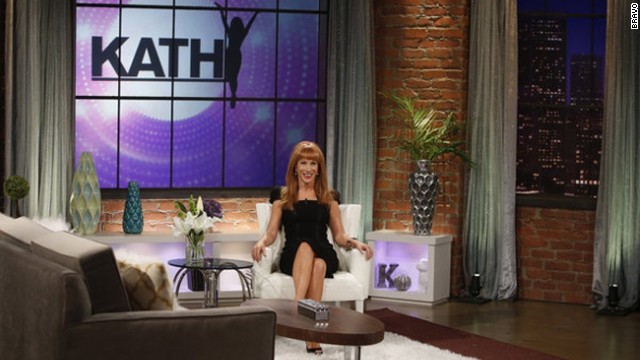 Like Sykes, Kathy Griffin is a veteran comic with experience hosting her own show. Unfortunately, Bravo pulled the plug on "Kathy" after two seasons.
Like Sykes, Kathy Griffin is a veteran comic with experience hosting her own show. Unfortunately, Bravo pulled the plug on "Kathy" after two seasons.
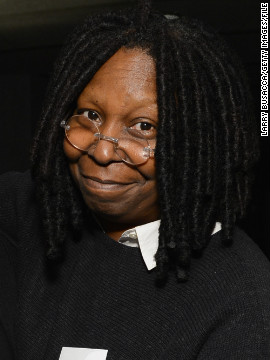
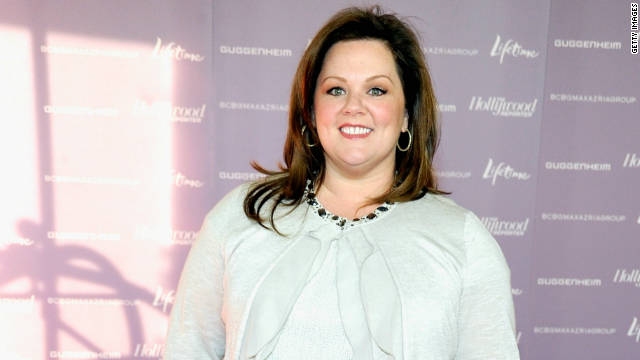 Melissa McCarthy is more of a wild card, considering that she doesn't have any experience hosting. But with the dedication she's brought to her two stints leading "Saturday Night Live" and her known fearlessness when it comes to physical comedy, we imagine a McCarthy-led hour would be a riot.
Melissa McCarthy is more of a wild card, considering that she doesn't have any experience hosting. But with the dedication she's brought to her two stints leading "Saturday Night Live" and her known fearlessness when it comes to physical comedy, we imagine a McCarthy-led hour would be a riot.
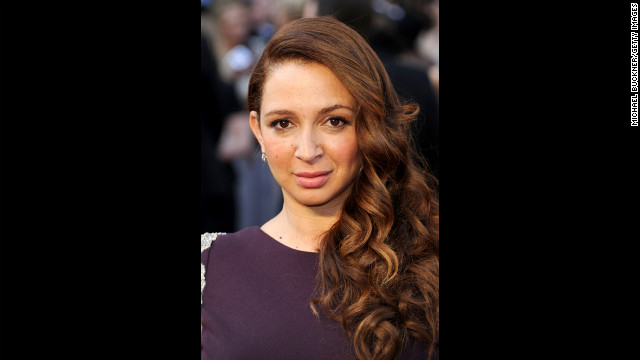 Like her "SNL" co-stars, Maya Rudolph is a sharp and accessible comedy star who can appeal to both genders. If Jimmy Fallon was plucked from his movie career to lead "Late Night," we don't see why the same couldn't happen with Rudolph.
Like her "SNL" co-stars, Maya Rudolph is a sharp and accessible comedy star who can appeal to both genders. If Jimmy Fallon was plucked from his movie career to lead "Late Night," we don't see why the same couldn't happen with Rudolph.
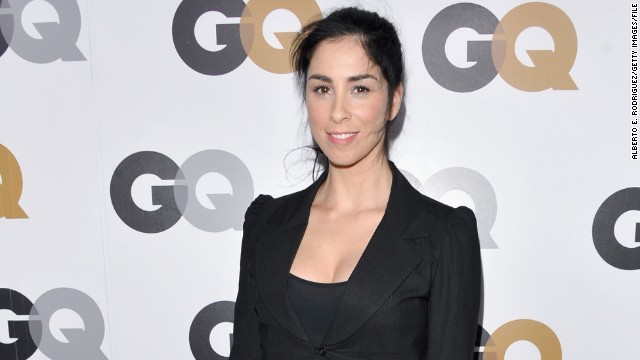 Yes, Sarah Silverman -- much like Chelsea Handler, should she ever reconsider her stance on broadcast TV -- would be on the saltier side for broadcast TV, but we've seen what she can do on "Jimmy Kimmel Live," and it's funny.
Yes, Sarah Silverman -- much like Chelsea Handler, should she ever reconsider her stance on broadcast TV -- would be on the saltier side for broadcast TV, but we've seen what she can do on "Jimmy Kimmel Live," and it's funny.
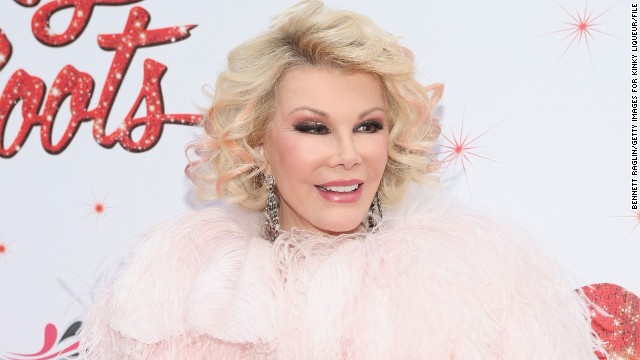 Joan Rivers broke the mold in 1986 when she stepped out on her own on with "The Late Show," and we see no reason why she couldn't return to late-night broadcast TV. "Maybe we'll see an old lady slide into 3 a.m.," she joked with CNN.
Joan Rivers broke the mold in 1986 when she stepped out on her own on with "The Late Show," and we see no reason why she couldn't return to late-night broadcast TV. "Maybe we'll see an old lady slide into 3 a.m.," she joked with CNN.
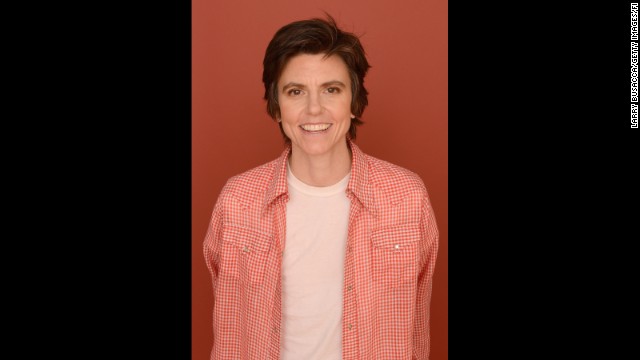 With her respected stand-up ability and her talent for turning life's trials into comedic fare, Tig Notaro is another strong pick for a potential late-night host spot. If she were to be tapped for "Late Night,"
With her respected stand-up ability and her talent for turning life's trials into comedic fare, Tig Notaro is another strong pick for a potential late-night host spot. If she were to be tapped for "Late Night," 










